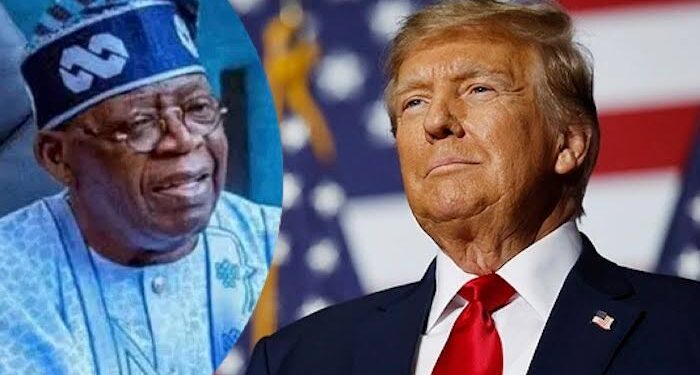Judge Beryl Howell ruled that withholding the documents is “neither logical nor plausible.”

A U.S. federal judge has ordered major American law enforcement agencies to release previously withheld investigative files concerning Nigerian President Bola Ahmed Tinubu. The documents stem from a purported investigation conducted in the 1990s.
Judge Beryl Howell of the United States District Court for the District of Columbia issued the ruling on Tuesday, declaring that efforts to shield the records from public view were unjustified. “Protecting the information from public disclosure is neither logical nor plausible,” she stated.
The court’s decision came in response to a Freedom of Information Act (FOIA) lawsuit filed in June 2023 by American transparency advocate Aaron Greenspan. Greenspan sued six U.S. agencies: the Executive Office for U.S. Attorneys (EOUSA), Department of State, FBI, Internal Revenue Service (IRS), Drug Enforcement Administration (DEA), and the Central Intelligence Agency (CIA).
Greenspan claimed the agencies failed to comply with FOIA regulations by refusing to release records concerning alleged federal investigations into President Tinubu and another individual, Abiodun Agbele.
Between 2022 and 2023, Greenspan submitted 12 FOIA requests seeking records from various U.S. government bodies, focusing on a joint probe involving the FBI, IRS, DEA, and U.S. Attorney’s Offices in Indiana and Illinois. The probe, he argued, revolved around a heroin trafficking network operating in Chicago during the early 1990s.
The records requested included investigative documents related to four individuals allegedly tied to the ring: Bola Tinubu, Lee Andrew Edwards, Mueez Abegboyega Akande, and Abiodun Agbele.
Each agency responded with what’s known as a “Glomar response”—neither confirming nor denying the existence of the requested records. Greenspan appealed the decisions to the Department of Justice’s Office of Information Policy, which upheld the agencies’ refusals. He then took legal action in June 2023, seeking to compel disclosure.
During court proceedings, Greenspan submitted a 1993 forfeiture case file involving Tinubu’s U.S. bank accounts. The Department of Justice had previously seized $460,000 from accounts tied to Tinubu, citing suspected drug proceeds. The affidavit supporting the forfeiture, signed by IRS Special Agent Kevin Moss, linked Tinubu to a wider drug trafficking and money laundering investigation that involved DEA, IRS, and FBI agents.
Judge Howell ruled on Tuesday that the Glomar responses issued by the FBI and DEA were invalid. Since both agencies had already acknowledged that Tinubu was a subject of past investigations, withholding the information lacked legal justification. “At this point, the claim that the Glomar responses were necessary is neither logical nor plausible,” the judge emphasized.
The ruling requires the FBI and DEA to disclose records specifically related to Tinubu and Agbele. However, the CIA was allowed to maintain its Glomar response, as the court found no evidence the agency had ever acknowledged the existence of responsive records.
President Tinubu, for his part, sought to intervene in the case, citing privacy concerns over the release of his tax records and federal law enforcement files. His attempts to halt the release, however, were not upheld.
The court ordered the remaining agencies—excluding the CIA—to file a joint report by May 2, 2025, detailing the status of any unresolved matters in the case.
In the earlier forfeiture case, government documents revealed that Agbele, described as a heroin dealer, was arrested in a DEA sting operation. Agbele allegedly identified Akande, who has been linked to Tinubu, as a relative. Investigators stated that Agbele sold heroin on multiple occasions and cooperated with authorities after his arrest.
Agent Moss’s affidavit concluded that there was probable cause to believe Tinubu’s bank accounts were used in transactions involving drug trafficking proceeds. The broader investigation pointed to financial links between Tinubu and members of the heroin distribution network.
While Nigeria’s courts have previously dismissed legal challenges over Tinubu’s eligibility to contest the 2023 presidential election, this latest ruling reignites scrutiny of his past legal entanglements in the U.S.











